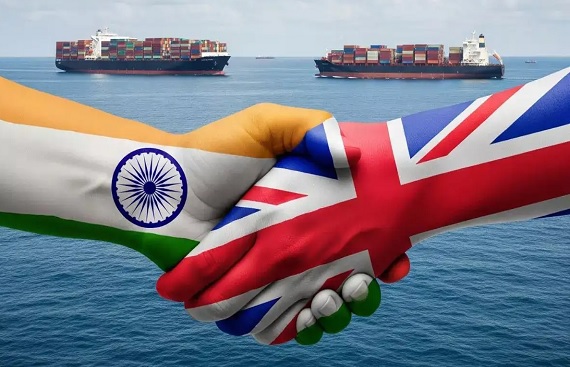India-UK CETA Unlocks Trade, Jobs, and Global Market Access
By
siliconindia | Monday, 28 July 2025, 03:40 Hrs

- CETA enables greater mobility for Indian professionals in IT, healthcare, education, and finance, with clear entry routes for service providers.
- 99% of Indian exports to the UK will now be duty-free, benefiting key sectors like textiles, gems, auto components, and MSMEs.
- The Double Contribution Convention will save over Rs 4,000 crore by exempting Indian workers from UK social security contributions for up to 3 years.
The India-UK Comprehensive Economic and Trade Agreement (CETA) is poised to redefine bilateral trade dynamics by delivering substantial benefits across goods, services, and professional mobility. With bilateral trade between India and the UK already touching $56 billion, the agreement sets an ambitious target to double this figure by 2030.
At the heart of CETA lies an expansive services framework, addressing India’s core strength services exports, which currently stand at a robust $19.8 billion to the UK. The agreement promises deeper market access in sectors such as information technology, IT-enabled services, finance, healthcare, education, telecom, architecture, engineering, and business consulting.
CETA creates structured, predictable, and simplified pathways for the movement of Indian professionals to the UK. It facilitates smoother entry for contractual service suppliers, business visitors, intra-corporate transferees, and independent professionals, including chefs, yoga instructors, and classical musicians. Up to 1,800 Indian professionals in these niche fields will now be allowed to work in the UK annually under the new provisions.
A key highlight of the agreement is the Double Contribution Convention, which exempts Indian professionals and their employers from paying UK social security contributions for up to three years during temporary assignments. This provision is expected to benefit over 75,000 Indian workers and more than 900 Indian companies, leading to potential savings of Rs 4,000 crore.
The trade pact also simplifies regulatory compliance for goods. Exporters from India can now self-certify the origin of their products, reducing administrative burden and paperwork. UK importers can also use importer knowledge for certification. For small consignments under £1,000, no documentation of origin is required, encouraging growth in e-commerce and SME participation.
Product-Specific Rules of Origin (PSRs) are aligned with India’s existing supply chains across key industries such as textiles, pharmaceuticals, machinery, and processed food, enabling seamless integration and competitive exports.
The agreement grants unprecedented duty-free access to 99 per cent of India’s exports to the UK, encompassing labour-intensive sectors like textiles, leather, marine products, gems and jewellery, and toys. High-growth sectors like engineering goods, chemicals, and auto components are also included, expected to drive large-scale job creation and boost incomes for artisans, MSMEs, women-led businesses, and startups.
In return, India has opened 89.5 per cent of its tariff lines, covering 91 per cent of UK exports, while protecting strategically sensitive sectors and products essential to India's domestic capacity-building initiatives.
Commerce and Industry Minister Piyush Goyal hailed the agreement, saying, “CETA opens new doors for trade and investment, protects India’s economic interests, and simplifies rules for professional mobility and trade operations. It is a catalyst for inclusive growth, empowering all sections of the economy”.
With its focus on balanced growth, CETA not only enhances India’s global trade standing but also lays the foundation for a new era of India–UK economic cooperation built on opportunity, trust, and mutual progress.
